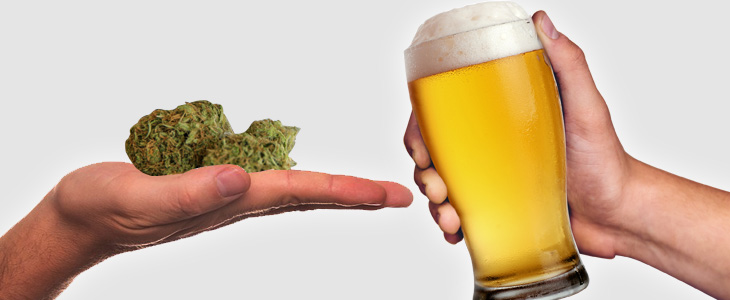
Tilray Buys Beer Brands – Cannabis | weed | marijuana
Tilray is expanding its market share by buying beer brands. Specifically, Tilray announced a deal to purchase eight beer and beverage brands from Anheuser-Busch Companies LLC.
According to the US Securities and Exchange Commission, the deal is valued at $85 million. Tilray will pay for the beer brands in cash.
Tilray says this purchase will triple its sales to 12 million cases of beer per year. If successful, Tilray’s purchase of eight beer brands will make it the fifth-largest craft beer company in the United States.
That begs the question: is Tilray even a cannabis company anymore?
Tilray buys beer brands
Tilray bought eight beer brands from Anheuser-Busch, including cider and seltzer. The eight brands are:
- 10 Barrel Brewing Co.
- Blue Point Brewing Co.
- Breckenridge Brewery.
- Hiball Energy.
- Redhook Brewery.
- shock top
- Square Mile Cider Co.
- Widmer Brothers Brewing.
Tilray already owns Alpine Beer, Green Flash Brewing, Breckenridge Distillery, Happy Flower CBD (making non-alcoholic cocktails), Montauk Brewing, and SweetWater Brewing.
Tilray CEO Irwin Simon said in a statement that the acquisition “consolidates both our national leadership position and our share of the U.S. craft brewing market and represents a major step forward in our diversification strategy.”
He also said Tilray’s beer brands would help them take advantage of THC-based beverages.
“Following the federal legalization of cannabis,” he said, “we expect to leverage our leadership position, broad distribution network, and portfolio of popular beverage and wellness brands to incorporate THC-based products and maximize any commercial opportunity.”
In response to the news, Tilray’s shares rose significantly.
Should cannabis companies switch to alcohol?

Tilray’s purchase of eight beer brands from Anheuser-Busch has its critics. Some believe that a cannabis company shouldn’t diversify into non-cannabis brands, especially alcohol.
Alcohol companies have long been at odds with the cannabis movement.
First, there is the elephant in the room. Alcohol is a poison while cannabis is a medicinal herb. Alcohol causes health problems while cannabis heals. Many former problem drinkers have gone “Cali sober” and replaced alcohol with cannabis.
We don’t have to go that far in history to find out what Anheuser-Busch really thinks about marijuana. As recently as 2010, they donated thousands of dollars to prevent cannabis legalization.
Prior to 2018, when InBev announced plans to develop cannabis-infused beverages, Anheuser-Busch was a longtime anti-cannabis lobbyist in Washington and elsewhere.
Will this association with alcohol (and Anheuser-Busch) negatively impact the Tilray brand? What about the long term? Time will tell, but so far, shareholders are pleased with Tilray’s purchase of eight brands of beer.
Bad strategy on the part of Anheuser-Busch?

Tilray’s purchase of eight beer brands from Anheuser-Busch looks good for its bottom line. But what about Anheuser-Busch? Why did you sell?
The beer giant was on a rocky road in 2023. The company’s flagship product, Bud Light, was the focus of the consumer boycott.
Earlier this year, Bud Light partnered with a transgender activist – Dylan Mulvaney – for a marketing campaign that completely backfired.
Given the product’s rather conservative customer base, the backlash wasn’t surprising.
Also, Dylan Mulvaney is incredibly sexist. (For example, his idea of being a woman is to say, “I’m fine” when you don’t — which reinforces negative stereotypes about women.)
Bud Light and its parent company have lost nearly $400 million in sales and laid off hundreds of employees as customers switch to Modelo and other beers.
As long as Tilray’s beer brands don’t get caught up in the Kulturkampf, the Tilray acquisition should be successful.
The problem is once again affecting cannabis users. Will they trust a cannabis brand that also deals in alcohol?
Or is a cannabis company trying to combine both worlds?
Financials are looking good for Tilray, but don’t be surprised if conscientious cannabis users shift their businesses elsewhere.
On the other hand, conscientious cannabis users tend to avoid these corporations like the plague. Tilray launched in Canada, where weed is legal but the “illegal” market still accounts for almost half of all sales.
Tilray’s purchase of beer brands is just another building block in the corporate-state wall that surrounds us.

Post a comment: